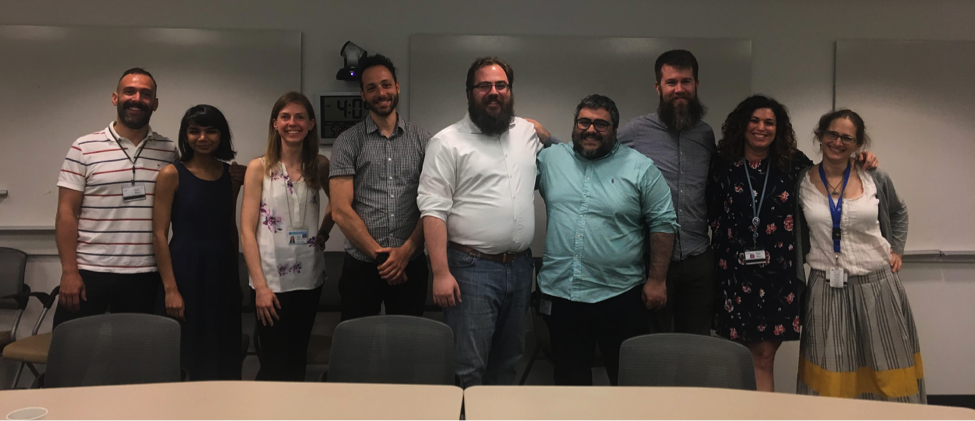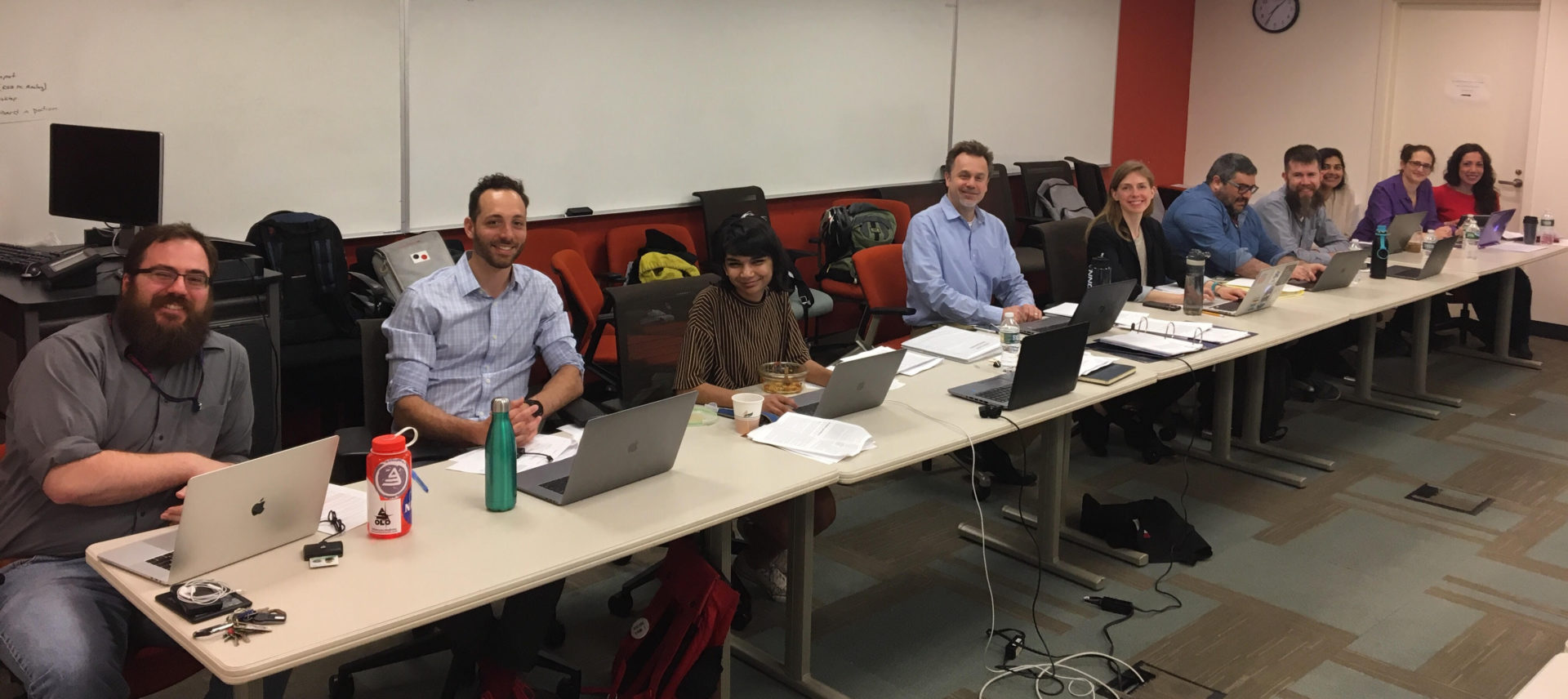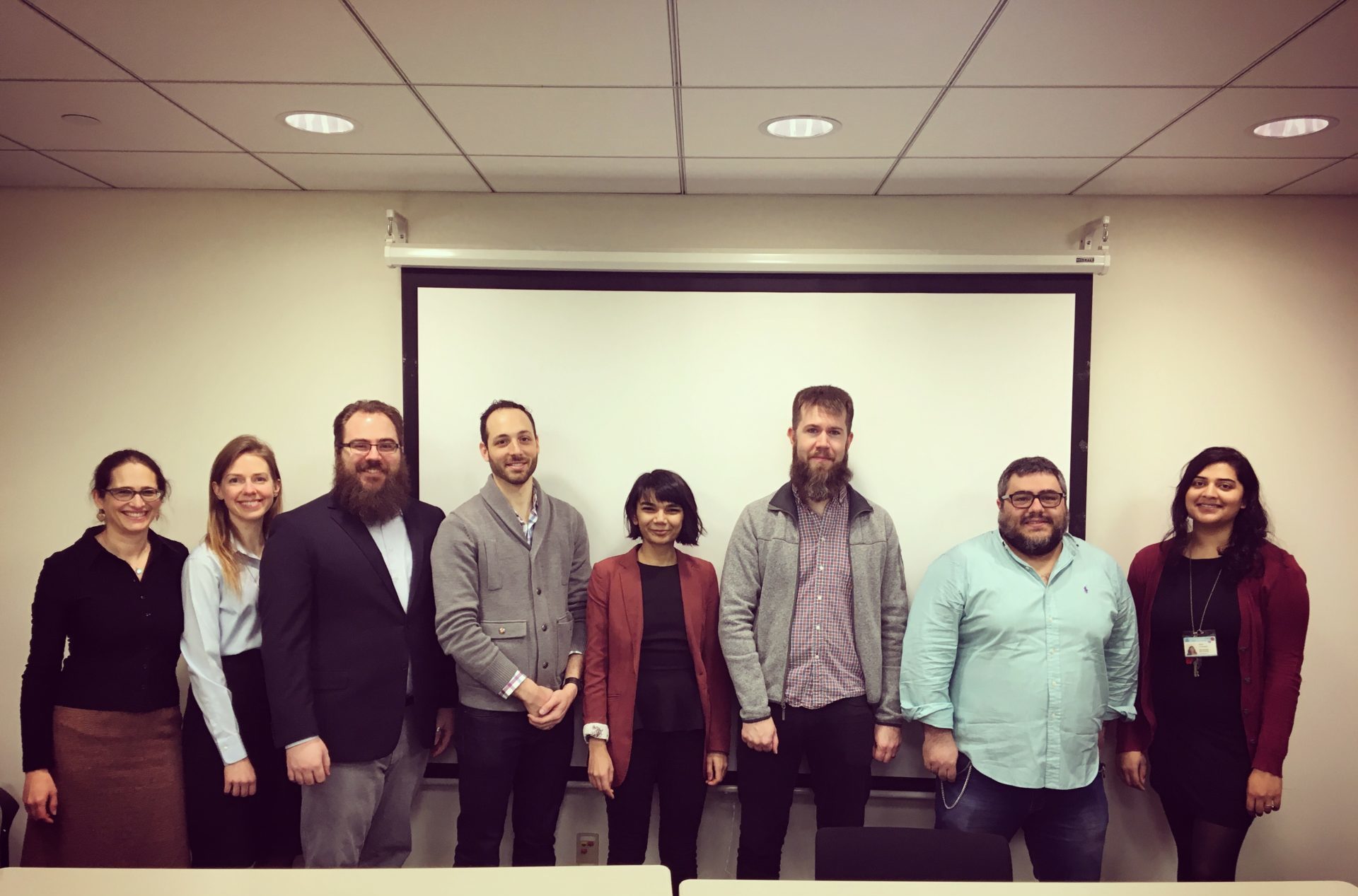
Yesterday, we had an eventful bargaining session with some progress and many updates. We are happy to report that we reached tentative agreement on three more contract articles (Training, Travel, and Workspace and Materials). The administration team also made its first significant — though still totally inadequate — change to its proposal on Non-Discrimination, showing they are at least trying to acknowledge the central importance of this issue to researchers at Columbia. In the most insulting development, the University team gave us a virtually meaningless compensation proposal that simply codifies the existing minimum salaries that leave us far behind the high cost of living and our colleagues at a growing number of competitor institutions in New York City. See further details below.
Making some progress with three more tentative agreements
First, the good news–we reached tentative agreement on three more contract articles: Training and Orientation; Travel; and Workspace and Materials.
The Training article ensures that, for any required or approved training or orientation, the University will pay any associated fees and will consider participation to be part of our regular work time. The Travel article ensures that PARs will receive advances or “timely reimbursement” for required work-related travel expenses–we believe having this provision in our contract will improve our ability to address delays in reimbursements under current practice. Lastly, the Workspace and Materials article commits the university to provide access to “facilities, equipment, materials, and access to the Internet and other network resources” necessary to do our work–a proposal that Columbia initially said it would refuse to include in our contract.
While we have many larger outstanding disputes, we are encouraged by our ability to reach agreement on some of the more basic contract provisions that enhance the rights of PARs in ways that are compatible with advancing the mission of the University.
A significant, but still totally inadequate, Columbia proposal on Non-Discrimination.
Nearly five months after our initial proposal, Columbia finally made a proposal that acknowledges the right of PARs to take a grievance on sexual harassment or discrimination to a neutral arbitrator. However, while we appreciate this important step in establishing rights to fair recourse, Columbia’s proposal remains mostly inadequate.
For example, their proposal would require a PAR to process a complaint through existing University non-discrimination procedures before initiating the union grievance process. This could lead to significant and totally unacceptable delays before a PAR could get a fair hearing from a neutral arbitrator because Columbia’s existing investigation procedures have no real deadlines. Columbia also continues to reject many of the other significant components of our proposal, such as protection against bullying, guaranteed interim measures to protect survivors from further harassment or discrimination during investigation of a grievance, and agreement to work jointly with the Union to improve training aimed at preventing bullying, harassment and discrimination. After a majority of PARs signed an open letter to Columbia demanding fair recourse, we are encouraged that Columbia has made a small improvement in its position, but we have a long way to go in order to reach agreement on this important topic.
A Compensation Proposal that would codify Columbia’s competitive disadvantage
Finally, Columbia’s team gave us an initial proposal on Compensation that simply reiterates the current University minimum salary rates for Postdoctoral Research Scientists, Postdoctoral Research Fellows, and Associate Research Scientists. Frankly, we are not even sure why the University gave us this proposal, as it offers no improvement to the status quo. As a majority of PARs have made clear throughout our campaign and in our bargaining surveys, Columbia needs to do significantly better when it comes to compensating us fairly for the world-class research we do at this University. Columbia’s minimum salaries lag significantly behind a growing number of New York City institutions that now pay Postdocs a minimum salary over $58,000. We know Columbia can do much better, and needs to do much better in order for us to work together to maintain our status as a magnet for attracting the best researchers from across the world.
We have several sessions coming up. If you would like to attend a session please RSVP to let us know in advance, as the locations are subject to change. Many PARs have attended bargaining sessions and found them illuminating to understand the process and the challenges we have ahead in order to win a fair first contract at Columbia.
Upcoming Sessions:
July 25th, 9am-1pm
July 29th, 2pm-5 pm
August 8th, 9am-1pm
August 15th, 9am-1pm
CPW-UAW Bargaining Committee

 In our seventh bargaining session, we presented the administration with our open letter signed by a majority of Postdocs and Associate Research Scientists, calling on Columbia to negotiate stronger protections and recourse against harassment and discrimination. Representatives from our union and the graduate worker union delivered the open letter to President Bollinger’s office earlier that afternoon.
In our seventh bargaining session, we presented the administration with our open letter signed by a majority of Postdocs and Associate Research Scientists, calling on Columbia to negotiate stronger protections and recourse against harassment and discrimination. Representatives from our union and the graduate worker union delivered the open letter to President Bollinger’s office earlier that afternoon.

